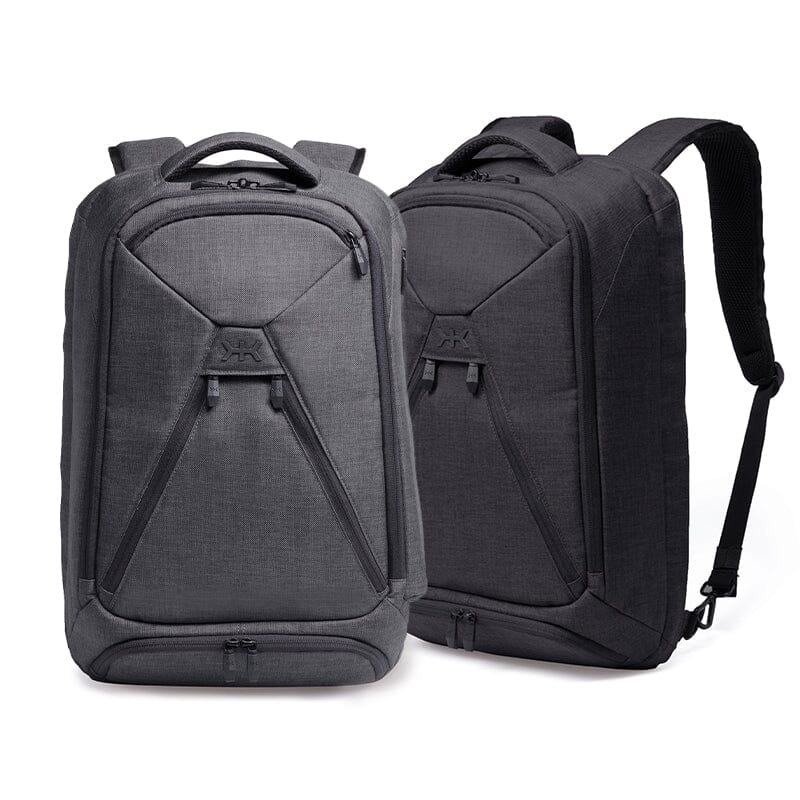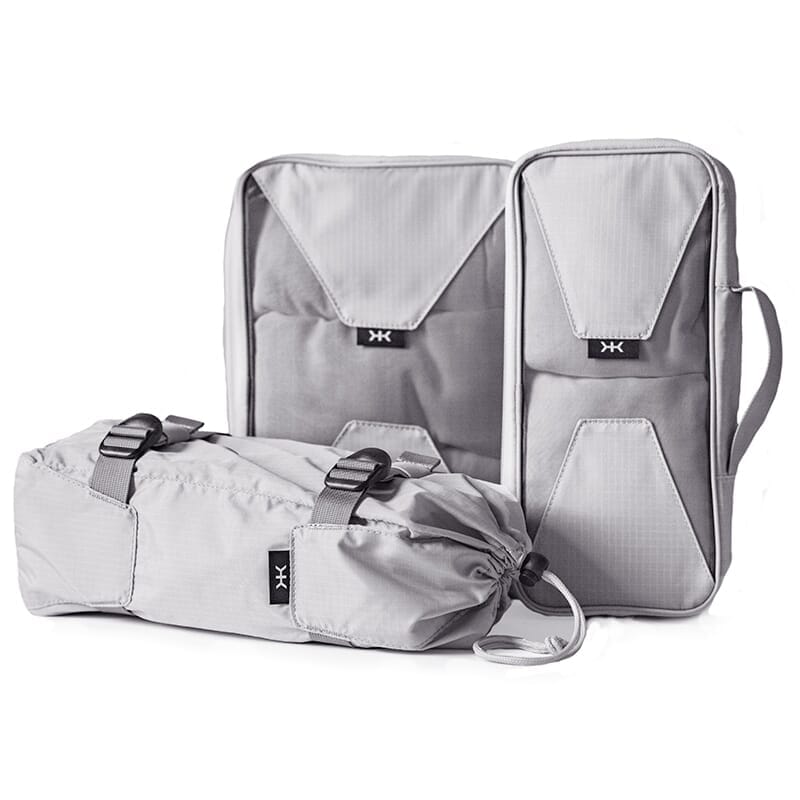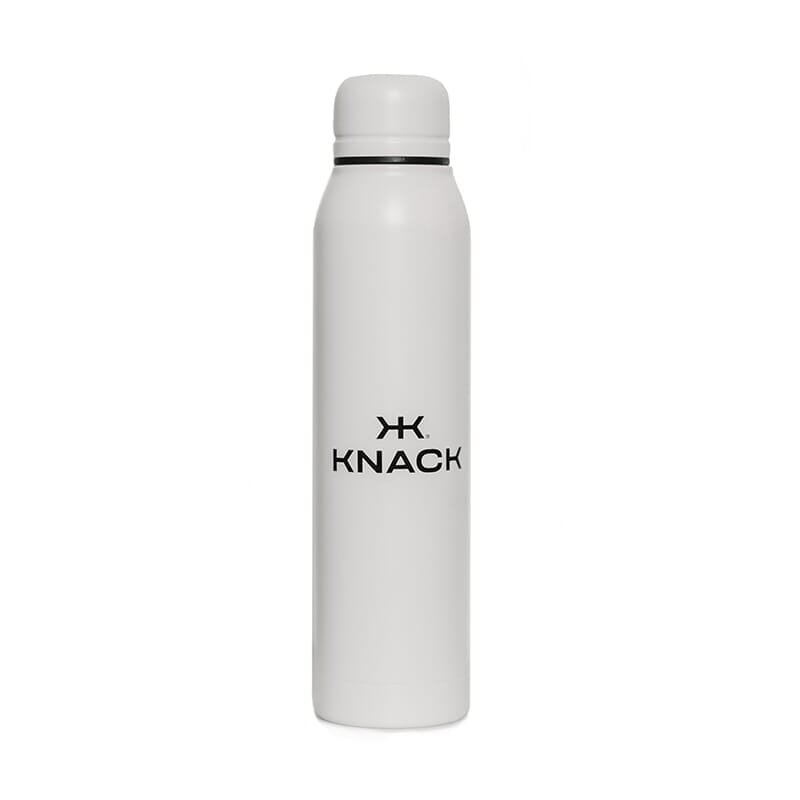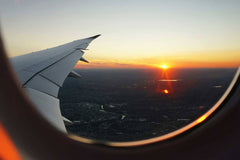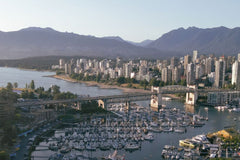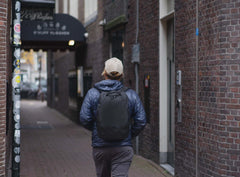How do you travel safely on a plane during Covid?
Numerous studies have shown that airline travel is actually pretty safe, thanks to hospital-grade HEPA filters, federal mask mandates, and enhanced cleaning protocols. Nevertheless, many of us still feel a little uncomfortable with the thought of squeezing into a narrow metal tube with a bunch of <potentially infected> strangers.
And now that the highly contagious Omicron variant is making its rounds, we thought it’s a good time to pass along some of our favorite tips for staying safe and healthy on airplanes during Covid (and we’re gonna skip the obvious stuff - we know that you know to wear a mask, get vaccinated, and wash your hands).

Top air travel safety tips during covid
- Use caution before getting on the plane
- Fly early in the morning
- Pick the safest seat on the plane
- Board the plane last
- Don’t eat when everyone else does
- Open the air vent
1. Use caution before getting on the plane.
When traveling during Covid, you need to use the most caution before getting on the plane. Airports, while relatively well-ventilated, are still crowded and have lots of high-touch surfaces that don’t get regularly sanitized. While you’re in the airport:
. Skip the TSA bins in security by keeping your personal belongings - like your phone, keys, and wallet - in your carry on bag.
. Don’t eat in the airport restaurants, as nobody will have their mask on. Instead, order to-go and eat at an empty gate.
. Use touchless check-in. Make sure that your boarding pass is already on your phone, so that you can avoid the airport kiosk. And if you’re checking bags, pay before you get to the airport so that you can take advantage of the contactless bag drop off.

2. Fly early in the morning.
Although Covid spurred many airlines to enhance their cleaning protocols, the recent resurgence of airline traffic means that planes have shorter turnaround times, and therefore, less time to clean between flights. For example, Southwest recently relaxed its between-flight sanitation procedures by choosing to forgo cleaning belt buckles and between armrests.
That said, most airlines have continued to do deep-cleans at night. So if you fly early in the morning, you’re more likely to board a freshly-sanitized plane than you are if you fly later on in the day.

Always do your own cleaning, though. Bring sanitizing wipes and sprays that are at least 70% alcohol (yes, TSA is allowing passengers to carry-on up to 12 oz of liquid hand sanitizer) and make sure that it stays on the surface for at least 30 seconds. And don’t forget easily-missed areas that could harbor virus particles. For example, the tray table may have been sneezed on (don’t set your head on it!!).
3. Pick the safest seat on the plane
The safest seat on the plane is the one that’s farthest away from other passengers. While it isn’t really possible to create significant distance between you and others in such a cramped space, you can choose seats that are more optimal.
The Covid era is a great time to take advantage of all those airline points you’ve been saving and bump yourself up to business or first class, where there’s more room between you and others.
But if coach is your only option, pick a window seat. In a window seat, you’ll have less exposure to movement of crew and other passengers who could be spreading the virus around. According to this study, getting within three feet of a person infected with the flu can increase your risk of contamination from 3% to 80% (while we aren’t scientists, we assume the risks are similar to Covid). With a window seat, you’re only next to one person and far away from all the people using the aisles.
4. Board the plane last.
Recent attempts by airlines to reduce Covid spread by boarding back-to-front have actually backfired, according to this study, which found that such a boarding procedure can actually double your risk of transmission.
It’s better to play it safe by boarding last. When you wait to board last, you’ll avoid standing in the jet bridge with the stranger behind you breathing down your neck, or get sandwiched in a bottleneck of passengers huffing and puffing as they heave awkward roller bags into the overhead compartments.
If you needed another reason to travel with Just One Bag, here it is. As the perfect carry-on, Knack Packs can really facilitate your ability to board at the last minute. Knack Packs are strategically designed to hold a lot of stuff, while still fitting under the seat in front of you. Read more about what makes Knack Pack the world’s best carry on bag for One Bag Travel.
“Goodbye carryon roller bag, hello Knack Pack. My favorite is waiting until the last minute to board the airplane, knowing that even though all the overhead bin storage is taken, I can slide my bag under the seat.”
- Matt S., Medium Expandable Knack Pack
5. Don't eat and drink when everyone else does.
Masks are federally mandated on all flights, except when people are actively eating and drinking. Unfortunately, meal service occurs all at once, which means that everyone goes maskless all at once. In a study by the Journal of Travel Medicine, risk of infection increased 59% during a one hour meal service.
For you, there’s an easy solution - eat before meal service, or after meal service. You can either bring your own food on the plane, or you can accept the meal service and hang onto it until everybody else gets their masks back on. It’s inconvenient, but not as inconvenient as a quarantine.
You should also bring your own water bottle on the plane. You’ll further minimize exposure to Covid when you’re not at the mercy of waiting for a flight attendant to fill up a tiny plastic cup of water. And, stay hydrated! Air in planes is notoriously dry, and your dehydrated mucous membranes (gross) are less effective at filtering out infected airborne molecules.
6. Open the air vent.
The World Health Organization says Covid spreads more easily in poorly ventilated spaces. “In poorly ventilated spaces, infected aerosols can remain suspended in the air or travel farther than the conversational distance.”
Airplanes already have great ventilation, in fact, the cabin air is completely changed every three minutes. But when you open up the little vent above your seat, you can actually create an invisible barrier that pushes away the air coming from other people’s seats (but don’t forget to wipe down the air vent when you first sit down!).
Air travel is safe when you take the necessary precautions and all of us at Knack are happy to be traveling again. Do you have any helpful tips for staying healthy on airplanes during Covid? Share in the comments below, and please share this article to help others stay safe!

